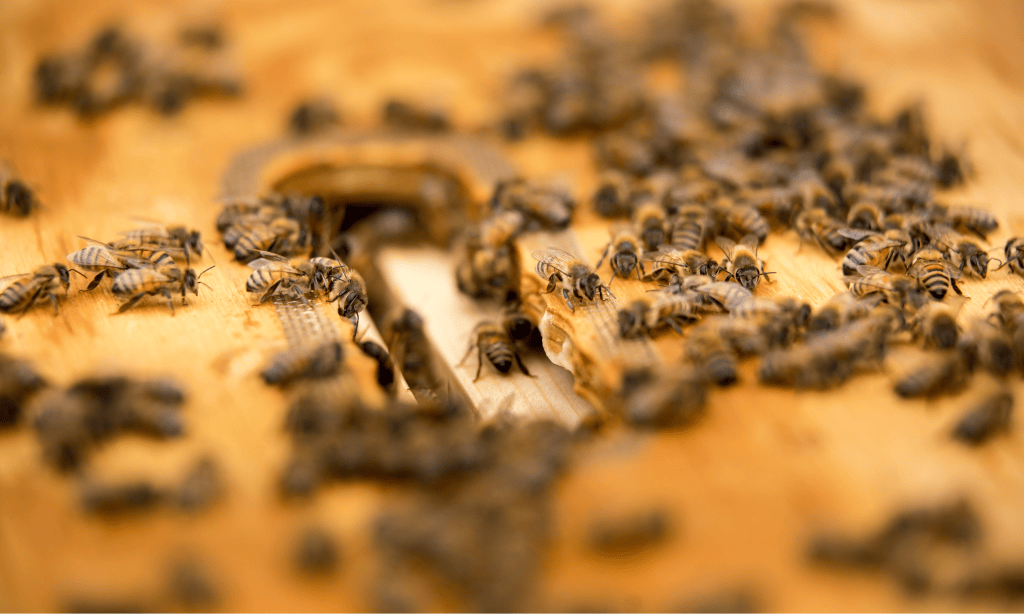Spring in the Southern Appalachians is bursting with energy—and nowhere is that more true than in our bee yards across Transylvania County, NC. At Bee. honey+hive, this season is all about setting up new colonies for success using locally raised nucleus colonies, also known as nucs.
Whether you’re a beginner beekeeper, a homesteader, or a small farm looking to strengthen your apiary with mountain-adapted bees, this guide will walk you through the gentle, grounded way we approach nuc installation—aligned with our core values of sustainability, community, and local resilience.
What Is a Nuc Colony (and Why We Love Them)
A nucleus colony, or nuc, is a starter beehive made up of five deep frames filled with:
-
A laying queen already accepted by her colony
-
Brood in various stages
-
Nurse and worker bees
-
Pollen and honey stores
Unlike packaged bees, a nuc is a complete microcolony—established, balanced, and ready to grow. It’s the ideal choice for anyone who wants to support natural colony development and give their bees the best possible start.
About Our Nucs: Raised in the Mountains of Western NC
At Bee. honey+hive, we don’t outsource our bees—we raise every nuc ourselves, right here in Transylvania County. Our queens are:
-
Open-mated in our own Appalachian apiaries
-
Grafted from our best-performing, gentle, productive stock
-
Evaluated thoroughly for brood pattern, strength, and temperament
We wait at least two weeks before releasing a nuc, giving each queen time to lay and establish her colony. When you install one of our nucs, every frame of brood is hers—no swaps, no imports, no shortcuts.
These bees are:
-
Adapted to our unique Southern Appalachian climate
-
Raised with mindful, low-impact practices using only organic-approved treatments
-
Suited for both backyard beekeepers and wholesale buyers building healthy, resilient apiaries
If you’re looking for bees that can handle the hills, humidity, and highland bloom, these are them.
How to Install a Nuc: Step-by-Step
Installing your Bee. honey+hive nuc into a full-size hive is simple and satisfying. Here’s how we recommend doing it:
1. Choose a calm, sunny day
Late morning to mid-afternoon is best—bees fly better and stress less when it’s warm and still.
2. Gather your equipment
You’ll need:
-
A standard 10-frame hive box with 5 empty frames
-
Hive tool
-
Smoker (just in case)
-
Protective gear
3. Transfer the frames
Lift each frame from the nuc box in order and orientation, placing them in the center of the hive box. Be gentle—look for the queen (usually on brood), and try not to roll or shake the bees.
4. Add the remaining frames
Fill in the sides of the box with the remaining empty frames to give your colony space to grow.
5. Close the hive and step back
Add the inner cover and lid, then let them settle in peace for a few days before doing a full inspection.
A Few Tips from Our Apiary
-
Feed if needed: A 1:1 sugar syrup helps if nectar is scarce during establishment.
-
Wait a week to inspect: Give the bees time to settle and the queen time to lay.
-
Look for eggs and brood: At your first inspection, check for healthy queen activity.
Why This Matters to Us (And Maybe to You)
At Bee. honey+hive, raising healthy, gentle bees for our community isn’t just about honey (though that comes later). It’s about:
-
Supporting local pollinators and food systems
-
Building regenerative agriculture in Western NC
-
Teaching sustainable practices to a new generation of beekeepers
-
Offering a product—whether it’s raw honey or nucleus colonies—that’s rooted in place, ethics, and care
When you buy a nuc from us, you're not just starting a hive. You're joining a movement of small farms, local beekeepers, and conscious consumers who care about the future of pollinators, our ecosystems, and Appalachian agriculture.
Wholesale Inquiries Welcome
We supply locally raised nucs and raw honey to:
-
Small farms and regenerative ag programs
-
Farm stores and co-ops
-
Herbalists, homesteaders, and community apiaries
Want to bring mountain-bred bees into your own hive system or retail space?
Contact us for wholesale nuc and honey availability


